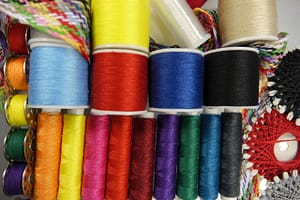Factors to consider before you purchase a sewing machine

Sewing is a creative hobby that enables you to communicate your inventiveness and create thoughtful presents for your family and friends which they can treasure for a lifespan. Regardless of whether you are an expert or a beginner, you wish to embroider a diverse range of stuff or have some specific items have on your mind. Certain machines with diverse choices and features and this can be intimidating.
These sewing machines regularly have a huge touchscreen or LCD for a user interface. A great portion of automatic machines has memory for storing the settings for numerous projects in the machine simultaneously. Before you decide to purchase a sewing machine here are some of the factors you should consider.

FACTORS TO CONSIDER WHILE PURCHASING A GOOD SEWING MACHINE
There are various kinds of sewing machines factors that define price. There is a more you have to do before making your ultimate decision. Before purchasing a sewing machine you should ask yourself these questions to assist you to choose a flawless machine for your requirements.
1) What kind of jobs will you be doing?
This may appear like an illogical question; however, it is extremely significant. Not every machine works for all kinds of projects. This implies that you should consider how you intend to utilize the machine.
Do you intend to sew blankets and clothes, in addition to repairing fabrics? If so, a more traditional computerized or automatic machine is probably the most suitable one for your needs.
Is your objective to doing fine embroidery or making quilts for family and friends? If so, an ordinary sewing machine may not be likely to bear the ability or functionality to deal with heavy projects like this.
For specialized tasks, it is commended that you acquire a task-specific sewing machine, like an embroidery or quilt sewing machine. Such machines are made to depict the specific stitch variety and heavy-duty capacity required while operating on this kind of project.

2) Does it have many or just a few options?
Some machines are rather basic, while others are complicated. Odds are what you require perhaps falls into this spectrum. However while looking for a specific model or preference; you need to put this factor into consideration
Certain sewing machines have restricted capabilities. They are made for light use, characteristically for learners, besides they do not possess all the whistles and bells of their advanced counterparts. Such machines are suitable for newbies since they are unlikely to involve a detailed comprehension of the various design parameters and terms.
The absence of options is unlikely to suit progressive operators well. However, they are likely to grumble due to its lack of settings. Complicated sewing machines which have a broader variety of user settings are more eye-catching to these users.
Progressive users comprehend the jargon and the distinction behind different kinds of associated design parameters as well as stitched designed for use. A learner would perhaps be mixed up with all the choices and be too intimidated to attempt to figure out.
3) How heavy/ big is the machine?
A classy and sophisticated machine which has all features you ever hoped for is unimportant if you cannot lift it to enable it to run. Sewing machines fall into a wide range of weights and sizes.
The more old-fashioned the machine, the weightier it is expected to be. Traditional sewing machines are attractive to look at. However, they are a great pain to transfer around and use.
Even contemporary machines differ widely in weight and size, which is a factor you should put into consideration while making your final decision. You need to ensure that your working surface offers enough space for the machine size.
Most machines offer their list of weights and dimensions that will assist you to conclude if it will be too burdensome for your requirements or not.
4) How swift is it?
Machines can be managed at a range of various speeds, enabling you to make fast work of any project or slow down to make sure there is consistency. Most machines possess a foot pedal that enables you to apply pressure to assist in determining the rapidity of the stitches.
However, there are certain specialty computerized machines that enable one to set their own, at times exceedingly quick, speeds. If you need a variety of capabilities involving the speed of stitching, this is a factor you need to assess for when considering your options.
Certain machines are best suited for swift speed than others. Others are specifically made for extremely fast stitching.
Industrial machines are the swiftest. However, they have an equally sharp learning curve. They are not commended for learners.
5) Is the machine below or above my skill level?
Sewing machines aren’t one size fits totally. Diverse machines are best suited for certain persons at diverse skill levels. Certain machines comprise more settings and features made for those with innovative abilities and understanding.



